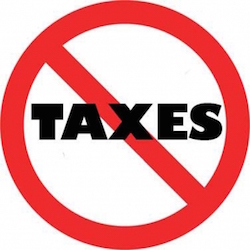 By Norm Singleton During his years in Congress, Campaign for Liberty Chair Ron Paul worked to reduce taxes on working Americans. One of Dr. Paul's most notable initiatives in this area was his legislation to reduce taxes on tips. I was reminded of this when I came across a fascinating article on Mises.org by Dr. Ken Zahringer, Research Fellow in the Division of Applied Social Sciences at the University of Missouri: So why do we tip? At first glance it seems rather odd that a waiter should be paid by two different people — employer and customer — for the same job. But in fact we, as tipping customers, are paying for a very different aspect of the waiter’s job than is the employer. The restaurant owner needs a way to get the customer’s order to the kitchen and the food out to the customer. Most anyone who can walk a straight line and operate a pencil can perform that task. But the restaurant owner also wants happy customers, and customers are happy when they have a waiter who can solve problems, handle special requests, and generally make their meal a pleasant experience, and that is a special skill set indeed. Coordinating these two different, and not closely connected, aspects of the job is what tipping is all about. Read the whole article here. Also see Dr. Zahrngier's article on Uber and the Economics of Tipping, and Bob Murphy's In Praise of Tipping. The argument that tipping provides a way for business owners to encourage their employees to provide excellent service to their customers supports Dr. Paul's case for not taxing tips as wages. Tips are not part of a worker's wages, since in most cases a customer is under no formal obligation to tip (he may feel an obligation to leave a tip because of social custom even if dissatisfied with the service, although someone who gets sub par treatment is likely to leave a smaller tip then someone who receives exceptional service). Since taxing tips reduces the amount a worker can get from tips, taxing tips reduces the incentive to provide excellent services, thus taxing tips damages consumers as well as employees. Here is Dr. Paul's official statement on the Tax Free Tips Act: THE TAX FREE TIPS ACT This article was originally published at The Campaign For Liberty.
Comments are closed.
|
Archives
July 2024
|

 RSS Feed
RSS Feed



